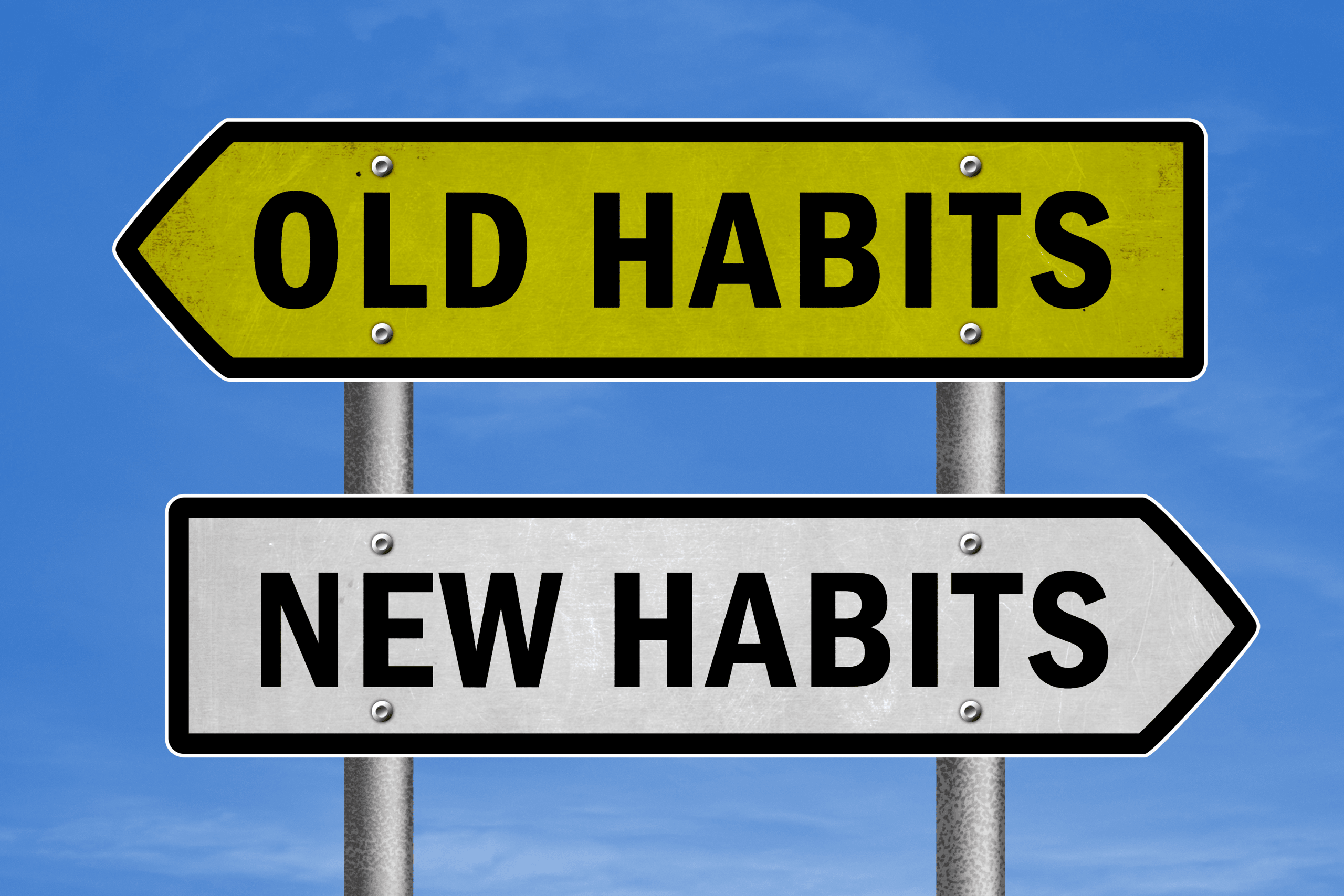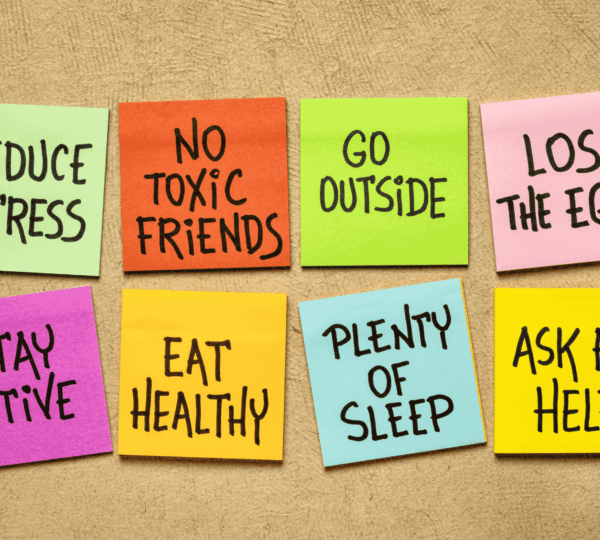
Daily Habits to Kickstart Your Self-Improvement Journey
Self-improvement is a journey many people start with the goal of becoming the best version of themselves. I once listened to the testimony of a guy who was deeply hooked on alcohol and gambling. His life was controlled by these habits, and he seemed stuck in a cycle of poor choices. Everything changed when he met a woman he really liked and wanted to ask out on a date. She worked as a grocery store attendant. Though kind, she was distant and unwilling to have anything to do with him as long as he continued living the way he was. That moment hit him hard, and he realized he needed to make a change.
He decided to start small, picking up healthier habits each day, and slowly began to turn his life around. It wasn’t easy, but over time, he managed to clean up his act. His story is a reminder that with the right mindset and daily habits, anyone can change for the better. So, how can you start your own self-improvement journey? This post will explore some daily habits that can help you become the best version of yourself.
1. Practice “Micro-Reflection” at the End of Your Day
While journaling is a popular practice for self-reflection, the concept of “micro-reflection” takes it a step further. Instead of writing long passages, simply note down two things: What went well today? and What could have gone better? This practice is backed by a 2023 study published in Psychology Today, which concluded that short, focused reflections are more beneficial for long-term behavior change than extensive journaling. Micro-reflection is quick and can be done right before bed, helping to adjust your mindset and foster continual improvement with minimal effort.
How to implement it: Dedicate 5 minutes each evening to this exercise. Reflect on one personal and one professional event from the day. This habit helps you prioritize growth areas without overwhelming yourself with too much detail.
2. Harness the Power of “Negative Visualization”
A unique habit practiced by Stoic philosophers is “negative visualization.” Rather than constantly thinking positively, it involves reflecting on worst-case scenarios. The goal is not to dwell in negativity, but to mentally prepare yourself for the unexpected, which in turn reduces anxiety and builds resilience. According to The Journal of Positive Psychology, incorporating this practice into daily life can actually increase gratitude, as it helps people appreciate their current circumstances.
How to implement it: Spend a few minutes each morning visualizing a worst-case scenario that could potentially happen during the day. Think through how you would handle it. This prepares you mentally, reduces fear, and allows you to focus on what really matters.
3. The “Mindful Eating” Habit for Mental Clarity
Eating is often treated as a mundane task, but mindful eating is gaining traction as a powerful habit for self-improvement. Research from the International Journal of Behavioral Nutrition and Physical Activity found that mindful eating not only improves digestion but also enhances mental clarity and emotional well-being. This habit encourages you to slow down and focus on the food you consume, creating a deeper connection to the present moment.
For a deeper dive into the concept and practical tips to get started, see this insightful guide on mindful eating.
How to implement it: Start by eating at least one meal a day without distractions (no phones, TV, or reading). Pay attention to every bite, the taste, texture, and aroma. This simple habit enhances your overall sense of well-being and keeps your mind sharp.
4. The “Power of No” Habit
Learning to say no is one of the most underrated habits in self-improvement. The Journal of Experimental Social Psychology reports that saying no to non-essential commitments frees up mental space, reduces burnout, and helps you focus on your true priorities. While setting boundaries is often emphasized in a general sense, few people actively practice it daily. Implementing the habit of saying no regularly can radically shift your productivity and emotional health.
How to implement it: Start small—say no to one thing each day that doesn’t align with your core values or goals. This could be a social invite, a work task, or a personal commitment. Over time, you’ll learn to protect your time and energy, boosting your focus on self-improvement.
5. Utilize “Strategic Downtime” for Creativity
In today’s fast-paced world, people tend to fill every moment with productivity, even in their downtime. However, studies from the University of California show that scheduled “strategic downtime”—time specifically dedicated to doing nothing—can help replenish creativity and problem-solving skills. When you actively plan periods where you have nothing to do, your brain switches to a more relaxed state, allowing for increased productivity and fresh ideas.
How to implement it: Schedule at least 15 minutes of downtime every day where you do nothing. No phone, no tasks—just let your mind wander. You’ll notice improved creativity and a calmer state of mind, which will enhance your overall self-improvement journey.
6. Reverse the “Daily Routine” for One Hour
Most self-improvement advice centers around morning routines. However, flipping your routine on its head in the evening can create a unique perspective. Research from The Journal of Behavioral Medicine indicates that breaking your routine intentionally can reduce stress and increase flexibility. By reversing your daily patterns for just one hour each day, you open up the possibility for new experiences and mental growth.
How to implement it: Take one hour each day to do something entirely different from your usual schedule—whether it’s working at a different time, taking a new route home, or starting your evening routine before dinner. This shake-up can increase mental adaptability and help you stay open to new opportunities.
7. Develop the “Slow-Down” Habit
In our hyper-connected world, slowing down is a revolutionary act. The American Journal of Lifestyle Medicine states that mindfulness and slowing down during daily tasks help lower stress, improve decision-making, and create a better work-life balance. Whether it’s sipping your coffee slowly or walking at a relaxed pace, these actions encourage presence and focus.
How to implement it: Choose one activity each day to “slow down.” It could be as simple as walking to work at a slower pace, savoring your morning cup of tea, or taking time to breathe deeply between tasks. The key is to create moments of intentional slowness to reset your mind.
8. Master the Art of “No Technology Mornings”
A growing body of research, including a study from Digital Detox UK, has shown the negative impact of starting the day with technology. Phones, emails, and social media can increase stress and distract from your personal goals. By practicing “No Technology Mornings,” you set the tone for a more focused and productive day.
How to implement it: Start your morning without checking your phone for at least the first 30 minutes. Use this time for more mindful activities like stretching, reading, or simply having breakfast. This helps you enter the day feeling more grounded and less reactive.
9. Engage in “Micro-Volunteering”
Giving back is a powerful way to improve your sense of purpose, and engaging in “micro-volunteering” can be a highly impactful daily habit. Micro-volunteering, which involves donating small amounts of time to causes you care about, has been linked to increased happiness and a sense of accomplishment, according to a study in The Journal of Positive Psychology.
How to implement it: Spend just 10-15 minutes each day volunteering for something meaningful. This could be helping a neighbor, contributing to an online cause, or even just offering advice to someone in need. Small acts of kindness can make a significant difference to your own growth journey.
Conclusion: Embrace the Power of Unique Daily Habits
Starting a self-improvement journey doesn’t require drastic changes. In fact, it’s the small, unconventional habits that make the biggest difference over time. By incorporating these unique daily habits into your routine, you can kickstart your journey toward personal growth, mental clarity, and a deeper sense of fulfillment. Remember, consistency is key. Each small habit you adopt builds on the last, creating lasting positive changes in your life.
References:
- “The Power of Micro-Habits for Long-Term Success,” Harvard Business Review, 2023.
- “The Benefits of Negative Visualization in Building Resilience,” Journal of Positive Psychology, 2023.
- “Mindful Eating for Mental Clarity and Emotional Health,” International Journal of Behavioral Nutrition and Physical Activity, 2023.
- “The Role of Boundaries in Preventing Burnout,” Journal of Experimental Social Psychology, 2023.
- “Strategic Downtime and Creativity,” University of California Study, 2023.
- “The Science of Breaking Routine to Improve Flexibility,” Journal of Behavioral Medicine, 2023.
- “The Benefits of Slowing Down in a Busy World,” American Journal of Lifestyle Medicine, 2023.
- “The Impact of Technology on Morning Routines,” Digital Detox UK, 2023.
- “Micro-Volunteering and its Positive Effects on Mental Health,” Journal of Positive Psychology, 2023.











